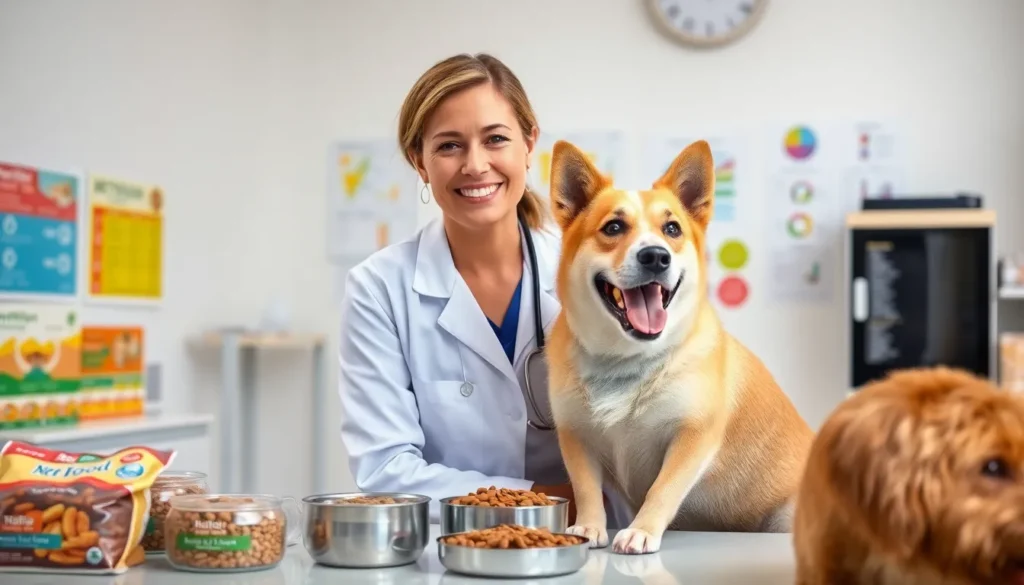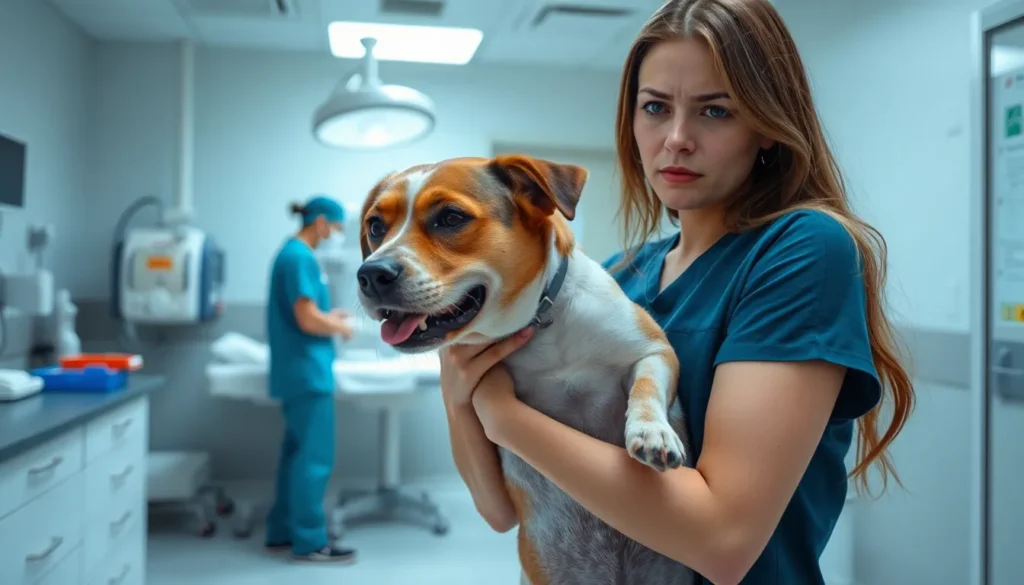Table of Contents
ToggleAs pet owners become increasingly aware of the importance of nutrition, the role of a pet nutritionist has gained significant traction. These professionals specialize in understanding the unique dietary needs of pets, ensuring they receive balanced and wholesome meals tailored to their specific health requirements. With the pet food industry booming, having expert guidance can make all the difference in a pet’s overall well-being.
Navigating the myriad of food options available can be overwhelming for pet parents. A pet nutritionist’s expertise helps demystify this process, offering personalized advice that promotes optimal health and longevity. From managing weight to addressing allergies or specific medical conditions, these specialists play a crucial role in enhancing the lives of beloved furry companions. Understanding the value of proper nutrition can transform not just a pet’s diet but their entire quality of life.
What Is a Pet Nutritionist?
A pet nutritionist is a professional specializing in the dietary needs of pets. These experts possess formal education in animal nutrition, often with certifications or degrees in fields like veterinary science or animal science. Pet nutritionists assess specific health concerns, lifestyle factors, and preferences of individual pets to create customized meal plans.
Pet nutritionists play a pivotal role in understanding the nutritional requirements of various species, including dogs, cats, and exotic animals. They analyze nutritional information on pet food labels, ensuring that pets get high-quality, balanced diets. Pet nutritionists also consider factors such as age, breed, and activity level when providing dietary recommendations.
Common responsibilities include:
- Evaluating Diets: Analyzing current pet diets to identify deficiencies or excesses.
- Designing Meal Plans: Creating tailored meal plans that fulfill specific nutritional needs.
- Addressing Allergies: Identifying food allergies and recommending alternative dietary options.
- Managing Weight: Developing strategies for weight management in overweight or underweight pets.
- Educating Owners: Providing informative sessions to educate pet owners about proper nutrition.
Pet nutritionists work in various settings, including veterinary clinics, animal hospitals, and private practices, promoting optimal health and longevity for pets through proper dietary choices.
Importance of Pet Nutritionists


Pet nutritionists play a crucial role in ensuring pets receive the right nourishment tailored to their specific needs. They enhance both the health of pets and the knowledge of pet owners regarding dietary choices.
Benefits for Pets
- Balanced Diets: Pet nutritionists formulate balanced diets, ensuring pets receive essential nutrients for optimal health.
- Weight Management: They create weight management plans, helping pets achieve and maintain a healthy weight, which reduces the risk of obesity-related conditions.
- Allergy Management: Nutritionists identify food allergies and sensitivities in pets, leading to the formulation of diets that alleviate allergies and improve overall comfort.
- Disease Prevention: They design meal plans that support specific health conditions, such as diabetes or kidney disease, contributing to longer, healthier lives.
- Improved Energy Levels: Tailored diets enhance energy levels in pets, promoting a more active and fulfilling lifestyle.
Benefits for Pet Owners
- Expert Guidance: Pet owners receive professional advice, making it easier to choose the right foods among numerous options available in the market.
- Education on Nutrition: Pet nutritionists educate owners on proper dietary practices, empowering them to make informed decisions that promote their pets’ health.
- Personalized Support: They provide individualized support, addressing unique concerns and preferences, which builds confidence in pet care.
- Long-Term Health Impact: Owners benefit from strategies aimed at ensuring the long-term health and wellness of their pets, reducing unexpected veterinary costs.
- Enhanced Bonding: Understanding a pet’s dietary needs fosters a deeper bond between the pet and owner, as owners actively participate in their pet’s health journey.
Services Offered by Pet Nutritionists
Pet nutritionists provide a range of services aimed at enhancing the dietary health of pets. Their expertise helps pet owners make informed dietary choices for their companions.
Personalized Diet Plans
Pet nutritionists create personalized diet plans tailored to each pet’s unique health needs, age, activity level, and breed. They assess factors such as weight, allergies, and any existing medical conditions. By evaluating specific nutritional requirements, they ensure pets receive balanced meals that support optimal health. For example, a plan for a senior dog may focus on joint health and reduced calories, while a plan for an active puppy might prioritize higher protein levels for growth.
Nutritional Consultations
Nutritional consultations provide pet owners with valuable insights into their pets’ dietary needs. During these sessions, pet nutritionists discuss the specifics of a pet’s lifestyle, medical history, and feeding habits. They analyze pet food labels and ingredients to recommend the best options available. Additionally, pet nutritionists educate owners on transitioning diets, supplementing with vitamins or minerals, and recognizing signs of dietary deficiencies or allergies. This collaborative approach enhances a pet’s health while empowering owners with knowledge about proper nutrition.
How to Choose the Right Pet Nutritionist
Selecting the right pet nutritionist is crucial for ensuring a pet receives optimal dietary guidance. Assessing qualifications, certifications, experience, and specializations helps pet owners make informed choices.
Qualifications and Certifications
Check for formal education in animal nutrition, veterinary science, or related fields. Look for accreditation from recognized organizations such as the Academy of Veterinary Nutrition Technicians (AVNT) or the National Association of Professional Pet Sitters (NAPPS). These credentials indicate the nutritionist’s commitment to maintaining current knowledge of dietary needs and trends in pet nutrition.
Experience and Specializations
Evaluate the pet nutritionist’s experience working with specific species or health conditions. Inquire about years in practice and familiarity with diverse diets, such as raw, grain-free, or prescription diets. Seek professionals who have successfully managed weight loss, allergies, or other health issues. Specializations in certain breeds or species can enhance the nutritionist’s ability to provide tailored advice relevant to individual pets.
The role of a pet nutritionist is invaluable in today’s world of pet care. With their expertise, they guide pet owners through the complexities of nutrition, ensuring pets receive the right balance of nutrients for optimal health. By focusing on individual needs, these professionals help prevent health issues and promote longevity.
Choosing the right pet nutritionist can significantly impact a pet’s well-being. Pet owners should consider qualifications and experience to find the best match for their furry companions. With the right support, owners can foster a healthier lifestyle for their pets, strengthening the bond they share. Investing in pet nutrition is an essential step toward a happier, healthier life for beloved pets.








